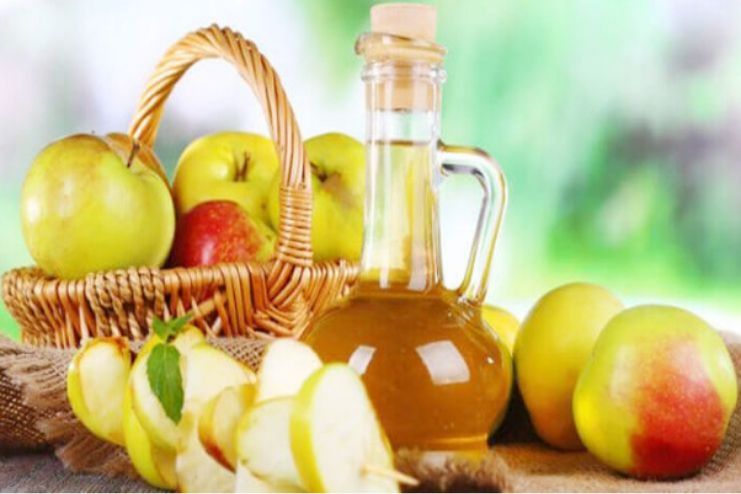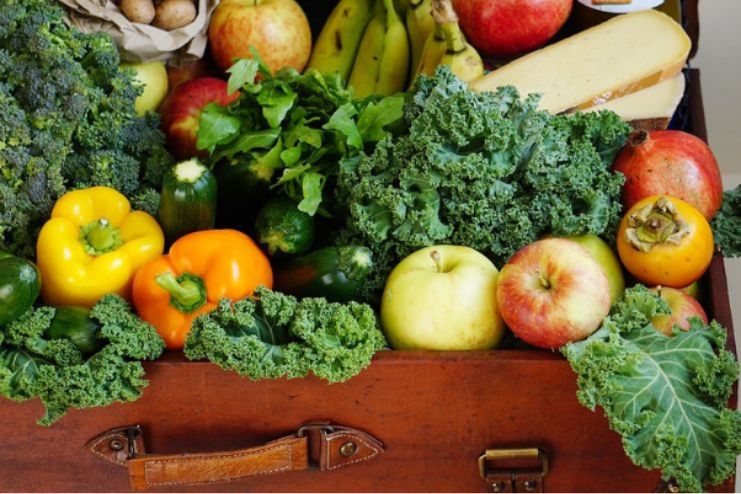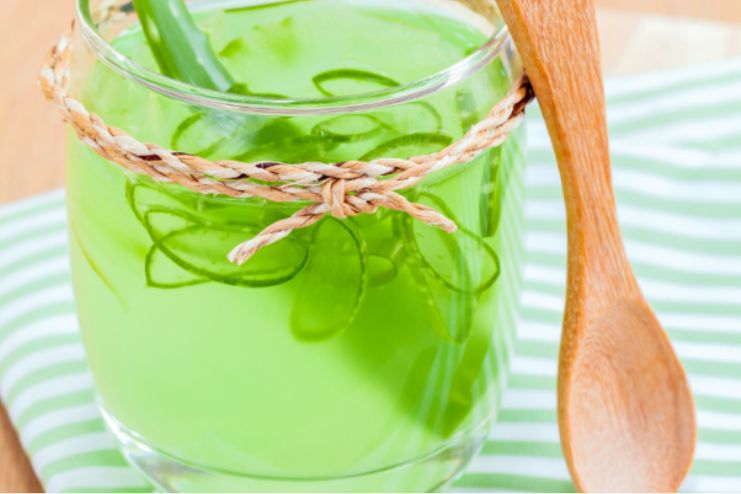Affiliate Disclaimer
Some links in this article are affiliate links. We may earn a small commission if you make a purchase through these links, at no extra cost to you. We only recommend products we find useful to our readersHave you ever been caught off guard by that all-too-familiar bloated feeling accompanied by sharp abdominal pain in your lower abdomen toward your chest? Does it happen more often than you’d like to admit? If your answer is yes, you’re not alone.
This uncomfortable condition is commonly known as sour stomach—medically referred to as dyspepsia or indigestion.
A sour stomach is not just a passing occurrence; it is a chronic problem for many, characterized by bloating, nausea, and constant burping. These symptoms often occur together, making it hard for individuals to enjoy meals and sometimes making them shy away from food altogether. While it may seem like a minor discomfort compared to more serious illnesses, neglecting indigestion can lead to significant digestive issues, even ulcers, over time.
What is a Sour Stomach?

A sour stomach is also referred to as an upset stomach, indigestion, or stomach pain. This feeling of discomfort and fullness within the stomach makes you feel uneasy and often occurs after eating something.
Though an acidic stomach sometimes suggests an underlying gastrointestinal disease, it can also be brought on by various other factors, such as poor eating habits or stress. Acute cases can usually be self-managed using home remedies or over-the-counter (OTC) products.
A sour stomach is not a disease but a combination of symptoms that cause distress in the abdomen and stomach. It is often an acute condition but may recur in some individuals. Dyspepsia, the medical term for indigestion or sour stomach, is often caused by poor eating habits or physiological factors, such as a hiatus hernia.
Read More: 10 Mistakes To Avoid When Trying To Improve Your Gut Health.
What Causes Sour Stomach?

As mentioned before, a sour stomach disturbs the gastrointestinal system. Generally, the primary cause of indigestion or sour stomach is excessive stomach acids in the gastrointestinal tract formed due to a lack of proper digestion of the ingested food (R).
Understanding the causes of a sour stomach is the first step in its treatment. Here are a few common factors that can lead to a sour stomach.
- Overeating:
Overeating stretches the stomach and increases gastric acid production, which can irritate the stomach lining and delay gastric emptying. This often leads to bloating, discomfort, and indigestion. - Consumption Of Spicy Or Greasy Food:
The irritating action of capsaicin, a constituent in spicy foods, on the stomach lining will delay the digestive process and create discomfort. Fatty foods, which contain fat, take time to digest. They are usually a trigger for acid reflux and indigestion.
- Not Chewing The Food Well While Eating:
Chewing is an important step in digestion because it breaks down food particles into smaller sizes and mixes them with saliva-containing enzymes such as amylase. Inadequate chewing places a greater burden on the stomach to break down large particles, leading to bloating and discomfort.
Read More: Eating Slowly vs Eating Fast: How Eating Pace Affects Health and Weight.
- Strenuous Exercise After Eating:
High levels of exercise after consuming food can redirect blood flow from the digestive system to the muscles, thereby slowing digestion. This results in cramping, bloating, and other sour stomach symptoms.
- Heavy Consumption Of Carbonated Beverages:
Carbonated drinks produce carbon dioxide gas, which may be retained in the stomach and cause bloating, burping, and discomfort. They may also weaken the lower esophageal sphincter, thereby causing acid reflux.
- Consumption of Acidic Foods:
Acidic foods (e.g., lemon, tomato, onions) can irritate the stomach lining and increase gastric acid production. Onions, especially raw, can relax the lower esophageal sphincter, which can contribute to acid reflux and a sour stomach.
Other causes include pregnancy, over-consumption of alcohol or chocolates, obesity, excess accumulation of fat, or lying face down after eating.
Signs and Symptoms of Sour Stomach

A sour stomach can have a range of symptoms, and the ability to detect them in their early stages will help prevent problems such as ulcers or digestive problems.
- Cramping in the Abdomen: This is mainly induced by an overproduction of acids in the abdomen or irritation of the stomach lining.
- Nausea and Vomiting: A sour stomach triggers nausea, making eating or carrying out daily activities uncomfortable.
- Sense of Fullness: Fullness is another common symptom of delayed digestion or gastric sluggishness.
- Stomach Bloating: Gas tends to cause the stomach to swell and feel tight after eating.
- Difficulty Swallowing Food or Dysphagia: Acid reflux irritation makes it uncomfortable or difficult to swallow food.
- Belching or Burping: A common outcome of swallowing excess gas or air when eating is burping.
- Chest Pain: This may be uncomfortable when stomach acid refluxes into the esophagus, creating a burning or tight feeling.
- Sweating and Palpitations: Intense abdominal pain can cause sweating and palpitations as part of the body’s stress response.
- Black or Dark-Colored Stools: Dark stools may indicate gastrointestinal bleeding, usually due to ulcers or severe irritation.
- Shortness of Breath and Heavy Breathing: Severe discomfort or bloating, especially when the stomach is distended, can cause shortness of breath.
Read More: Why Probiotics Might Not Work Without Prebiotics.
Home Remedies for Sour Stomach

Many people suffer from sour stomachs, so they must select the right remedies to alleviate their discomfort and prevent long-term issues. Though medical treatments like antacids or proton pump inhibitors may work for severe cases, most mild symptoms can be managed with simple lifestyle changes and home remedies.
However, if the symptoms are persistent and severe, it is best to opt for immediate medical help and not just rely on natural remedies. Some common medical treatments for sour stomachs are antacids, H-2-receptor antagonists, and proton pump inhibitors (PPIs).
Home remedies are the most preferred since they provide relief without causing adverse side effects. Dietary changes, such as avoiding trigger foods and digestive aids like ginger, peppermint, or apple cider vinegar, can soothe a sour stomach.
For mild symptoms, try these natural home remedies to treat your sour stomach:

1. Baking Soda:

Baking soda is one of the best and most common home remedies for a sour stomach. It is primarily a basic compound that reacts with the excess acid in the stomach and helps neutralize it. As an antacid, it can effectively treat heartburn, indigestion, and upset stomach.
How to Use?
- Mix 1/2 teaspoon of baking soda with 4 ounces of warm water.
- Drink the mixture for relief.
When to Use Baking Soda:
Remember, baking soda works as a short-term remedy for acid reflux. It’s best taken after an hour or two of eating. You must allow at least a 2-hour gap between taking baking soda and other medications.
2. Cinnamon:

Cinnamon is an excellent natural remedy for an upset stomach, given its antioxidant properties that reduce irritation and damage in the stomach. It also helps stimulate the secretion of digestive enzymes to support digestion. Moreover, cinnamon balances the stomach acid, which makes digestion easier and more comfortable.
It contains antioxidants such as camphor, cinnamaldehyde, linalool, and eugenol, all of which contribute to good digestive health. Moreover, cinnamon can provide relief from common stomach discomforts like diarrhea, cramps, and indigestion, making it a useful addition to your routine for soothing an upset stomach.
Read More: 5 Important Health Benefits of Cinnamon.
How To Use?
- Mix one teaspoon of cinnamon in one glass of water and mix it well.
- Sip this drink to alleviate the issues within a few minutes.
- Try consuming the same after an hour or so to help get rid of it completely.
Foods for Sour Stomach

A healthy diet plays a crucial role in preventing and treating sour stomachs. The right diet with healthy foods can help soothe discomfort and promote digestion. Here are some of the best foods to include in your diet to relieve a sour stomach.
3. Papaya:

Ripe Papaya is one of the most sought-after foods for treating a sour stomach and indigestion, and it helps in the proper digestion of food.
Papaya consists of two enzymes, papain and chymopapain, which promote the smooth breakdown of the protein molecules in the food. This encourages easier digestion and smoother absorption of nutrients. It also ensures proper maintenance of the pH of the stomach and the entire gastrointestinal system.
You can eat slices of papaya two or three hours after a meal or just as a snack in between meals. Make sure that they are well-ripened and not unripe, as unripe papayas may cause adverse effects if you are already suffering from a sour stomach or indigestion.
4. Yogurt:

Yogurt can be a perfect option to treat a sour stomach if you aren’t lactose intolerant. The probiotic enzymes present in yogurt promote food digestion and help regulate the digestive system’s pH levels.
How To Use?
- You can use it as a condiment for your food items or even finish your meal with a small bowl of yogurt.
-
Artichoke Leaves:

Artichoke leaf extract helps reduce the symptoms of indigestion and irritable bowel syndrome (IBS). Cynarin, a key compound found in artichokes, promotes bile production in the liver, which helps break down food and detoxify the body. It also helps reduce stomach spasms and gas.
How to Use?
- Artichoke leaf extract can be consumed daily.
- Improvement in symptoms may be noticeable after 2 to 8 weeks of use.
6. Bananas:

Bananas can treat an upset stomach, sour stomach, and heartburn because they are a great source of potassium and electrolytes. These aid in easing stomach pain and diarrhea. They also promote mucus in the stomach, shielding it from acid.
Bananas also have natural alkaline properties, neutralizing stomach acid and preventing acid reflux. Additionally, they help restore electrolytes lost from the body because of vomiting or diarrhea. A high amount of pectin in the fruit also helps treat signs related to constipation and hardened stool.
Eat 1-2 bananas per day for best results. You can have it as a part of breakfast or snack or even just anytime you feel hungry.
7. Oatmeal:

Oatmeal can be a soothing agent for sour stomachs due to its easily digestible nature, which helps absorb acid better. It is also fiber-rich. Its use helps reduce symptoms of GERD by binding excess stomach acids and reducing constipation.
How To Use?
- Boil oats and milk (or water if you are lactose intolerant) and make porridge.
- Add some fruits and nuts for taste and crunch. Add papaya, bananas, and walnuts with a drizzle of honey.
Juices for Sour Stomach
A Sour Stomach not only causes nausea and vomiting but eventually leads to dehydration. This makes your body lose essential nutrients due to the lack of food intake caused by bloating. These lost nutrients from the body can be effectively replenished with the intake of juices, especially the freshly squeezed juices and not the pre-packaged ones.
8. Aloe Vera Juice:

Aloe vera juice is a great remedy for a sour stomach and its symptoms, such as bloating, acid reflux, irritable bowel syndrome, and others.
When consumed as a tonic for the digestive system, aloe juice can be used to soothe the stomach. In one independent trial published in the Journal of Research in Medical Sciences,* aloe vera juice consumption was found to help relieve intestinal discomfort and inflammation.
9. Apple Juice:

Apple juice can treat stomach upset because it contains fiber, minerals, and natural sugars that assist digestion. The fiber in apple juice keeps the intestines healthy, and minerals such as calcium, magnesium, and potassium help soothe stomach acid reflux.
In addition, sorbitol in apple juice helps control digestion, and the iron content promotes better gastrointestinal processes, so apple juice is an optimal remedy for soothing a stomach upset.
10. Orange Juice:

Orange juice contains fiber, citric acid, and vitamin C, which soothe the stomach. Its acidic and alkaline composition cleanses the digestive system while lowering excess stomach acid.
Orange juice also supports intestinal function by helping to relieve constipation and diarrhea. Its anti-inflammatory effect can reduce bloating, and the fiber helps a person achieve a healthy digestive system.
11. Carrot Juice:

Carrot juice has several benefits for an upset stomach. It preserves the stomach lining, preventing such conditions as ulcers and gastritis. Vitamin A from carrot juice prevents damage to the gastric mucosa. It also helps prevent gastroparesis, which is delayed stomach emptying due to various causes.
-
Teas for Sour Stomach

Teas are another home remedy for a sour stomach and can help with symptoms like bloating, nausea, and discomfort.
Teas like ginger or peppermint have natural soothing properties that aid digestion, reduce inflammation, and relax the stomach muscles. These properties contribute to faster relief from indigestion and the balance it restores in the digestive system, making tea an ideal way of handling sour stomach symptoms.
Teas have beneficial properties. While green tea is rich in antioxidants, chamomile tea is rich in terpenoids, which calm the body’s digestive system. Ginger tea, on the other hand, aids digestion, thus addressing the root of the problem.
If you are seeking natural remedies for a sour stomach, opt for tea. It effectively relieves the signs and symptoms of dyspepsia.
Tips To Prevent Sour Stomach

To fully treat and avoid sour stomachs, diet and lifestyle adjustments are necessary. You can minimize the risk of discomfort in your digestive system by avoiding some foods and replacing them with some health habits.
Dietary Changes:
- Do not consume refined sugar and processed food.
- Limit alcohol, caffeine, and fizzy drinks.
- Exclude oily, greasy, and spicy food.
- Reduce dairy intake, especially if lactose intolerant.
Lifestyle Adjustments:
- Eat at the same time every day and avoid overeating.
- Practice relaxation techniques to manage stress.
- Maintain hydration and have fiber-rich foods.
Conclusion:
In conclusion, managing a sour stomach with home remedies is simple, easy, as well as effective. You can try yogurt, various fruit juices, soothing teas, papayas along with dietary changes. Avoid sugary and greasy foods as they disturb gut health, and ensure you are properly hydrated.
While these remedies provide better relief, they can sometimes be temporary. If symptoms persist, you must get professional advice.
Here’s your chance to embrace good gut health and prevent a sour stomach using natural remedies. This not only promotes your digestive health but also supports your overall well-being. Always listen to your body and adjust accordingly for optimal results!
-
July 2018Written by Somapika D
-
Feb 2025Edited by Vaishnavi
References
In this Article




















